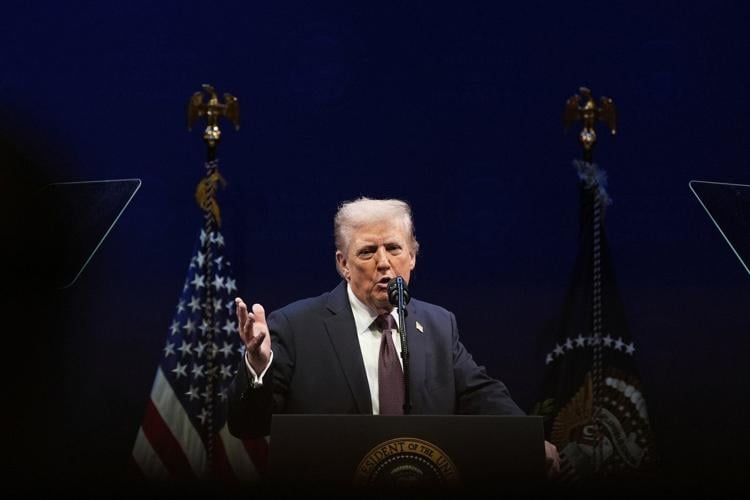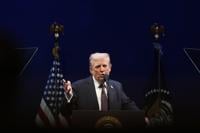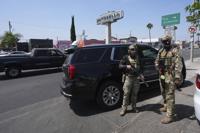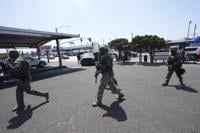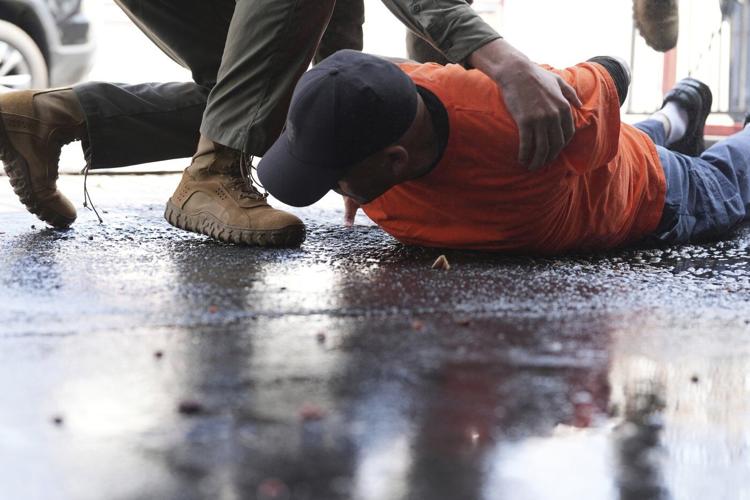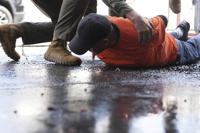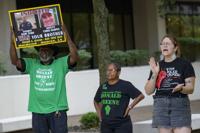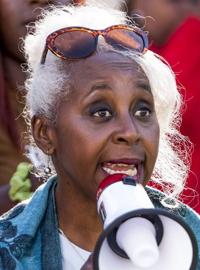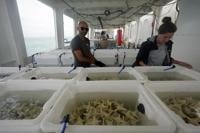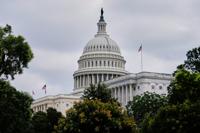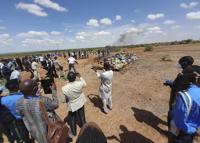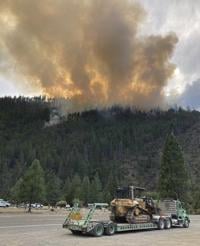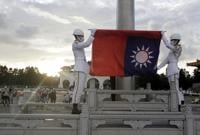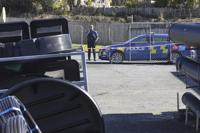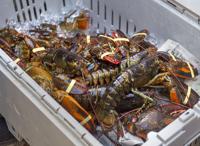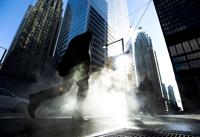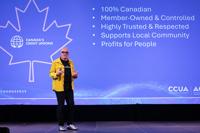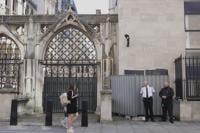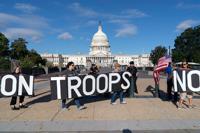WASHINGTON (AP) ā The Supreme Court on Monday cleared the way for federal agents to conduct sweeping immigration operations for now in Los Angeles, the latest victory for President Donald Trump's administration at the high court.
The conservative majority lifted a restraining order from a judge who found that āroving patrols" were conducting indiscriminate stops in and around LA. The order had barred from stopping people solely based on their race, language, job or location.
Justice Brett Kavanaugh said the broad order went too far in restricting how Immigration and Customs Enforcement agents can carry out brief stops for questioning.
āTo be clear, apparent ethnicity alone cannot furnish reasonable suspicion; under this Courtās case law regarding immigration stops, however, it can be a ārelevant factorā when considered along with other salient factors," he wrote in a concurrence with the majority's brief, unexplained order. He suggested that stops in which force is used could yet face more legal pushback.
In a stinging dissent joined by her two liberal colleagues, Justice Sonia Sotomayor wrote, āCountless people in the Los Angeles area have been grabbed, thrown to the ground, and handcuffed simply because of their looks, their accents, and the fact they make a living by doing manual labor. Today, the Court needlessly subjects countless more to these exact same indignities."
The Supreme Courtās 6-3 decision comes as ICE agents also step up enforcement in Washington amid of the capital cityās law enforcement and deployment of the National Guard.
Trumpās Republican administration argued the order wrongly restricted agents carrying out .
U.S. District Judge Maame E. Frimpong in Los Angeles had found that enforcement tactics were violating the Constitution. The plaintiffs included U.S. citizens swept up in immigration stops. An appeals court had left Frimpongās ruling in place.
The lawsuit will now continue to unfold in California. It was filed by immigrant advocacy groups that accused Trumpās administration of systematically targeting brown-skinned people during his administrationās crackdown on illegal immigration in the Los Angeles area.
Department of Homeland Security attorneys have said immigration officers target people based on illegal presence in the U.S., not skin color, race or ethnicity. Even so, the Justice Department argued that the order wrongly restricted the factors that can use when deciding who to stop.
The Los Angeles region has been a battleground for the Trump administration after its hard-line immigration strategy spurred protests and and the Marines. The number of immigration raids in the LA area appeared to slow shortly after Frimpongās order came down in July, but recently they have become more frequent again, including an operation in which agents and made arrests at an LA Home Depot store.
The plaintiffs argued that her order only prevents federal agents from making stops without reasonable suspicion, something that aligns with the Constitution and Supreme Court precedent.
āNumerous U.S. citizens and others who are lawfully present in this country have been subjected to significant intrusions on their liberty,ā the plaintiffsā attorneys wrote. āMany have been physically injured; at least two were taken to a holding facility.ā
The Trump administration said the order is too restrictive, āthreatening agents with sanctions if the court disbelieves that they relied on additional factors in making any particular stop.ā
Solicitor General D. John Sauer also argued the order canāt stand under the high courtās recent decision restricting , though the plaintiffs disagreed.
The order from Frimpong, who was nominated by Democratic President Joe Biden, barred authorities from using factors like apparent race or ethnicity, speaking Spanish or English with an accent, presence at a location such as a tow yard or car wash, or someoneās occupation as the only basis for reasonable suspicion for detention. Its covered a combined population of nearly 20 million people, nearly half of whom identify as Hispanic or Latino.
Plaintiffs included three detained immigrants and two U.S. citizens. One of the citizens was Los Angeles resident , who was shown in a June 13 video being seized by federal agents as he yelled, āI was born here in the States. East LA, bro!ā
Gavidia was released about 20 minutes later after showing agents his identification, as was another citizen stopped at a car wash, according to the lawsuit.
___
Associated Press writer Jaimie Ding in Los Angeles and Mark Sherman in Washington contributed to this report.
___
Follow the APās coverage of the U.S. Supreme Court at and immigration at .

